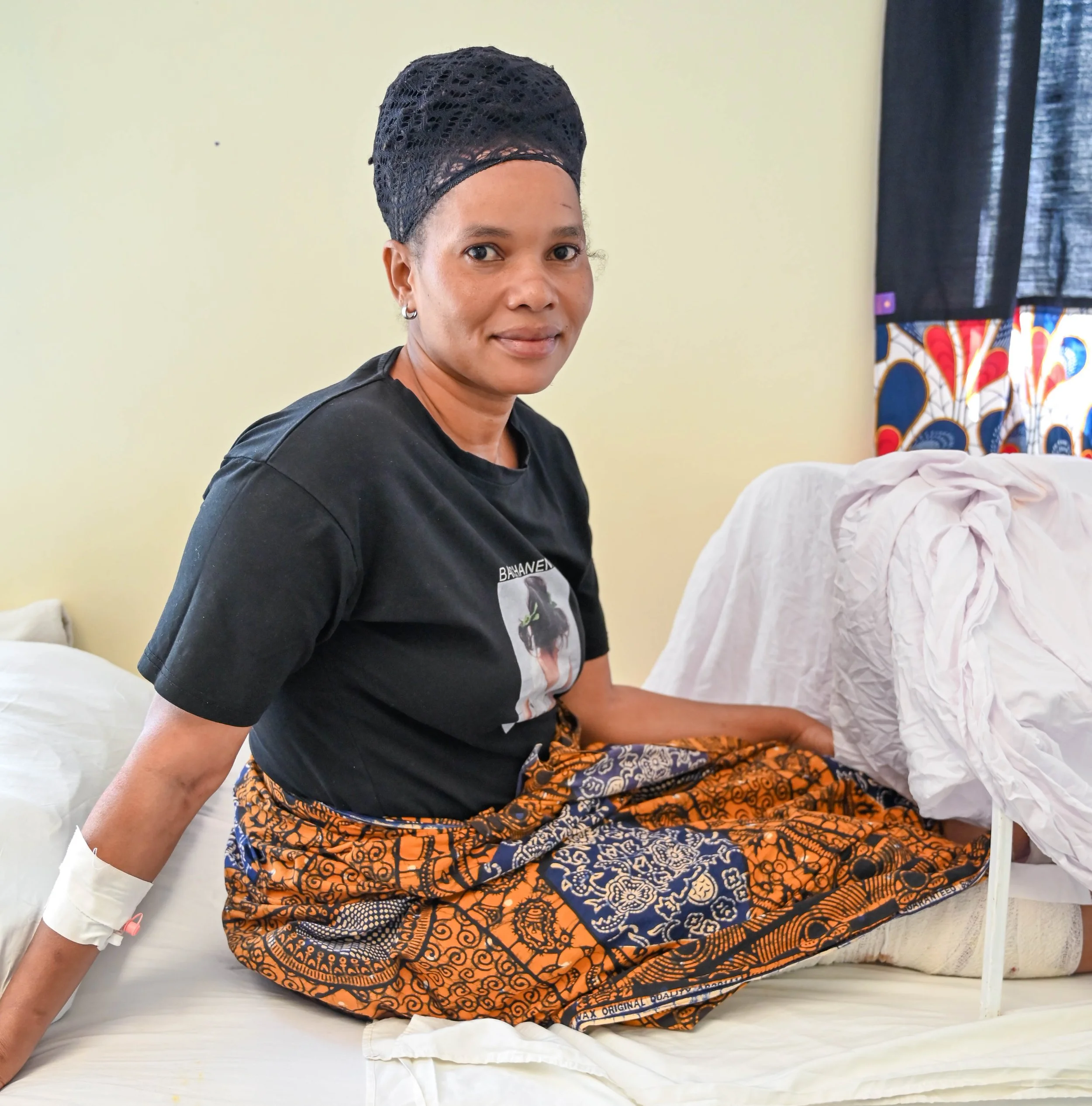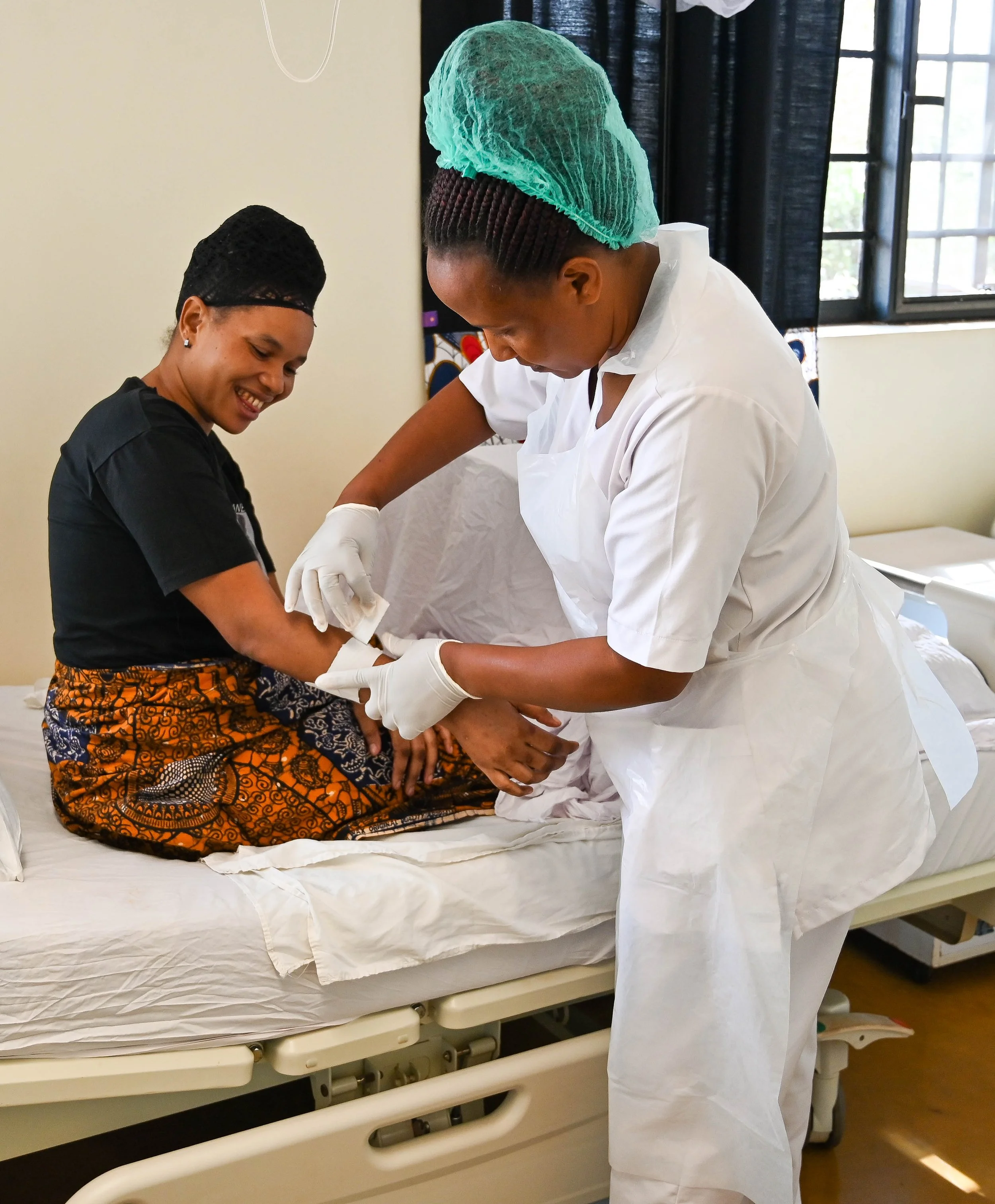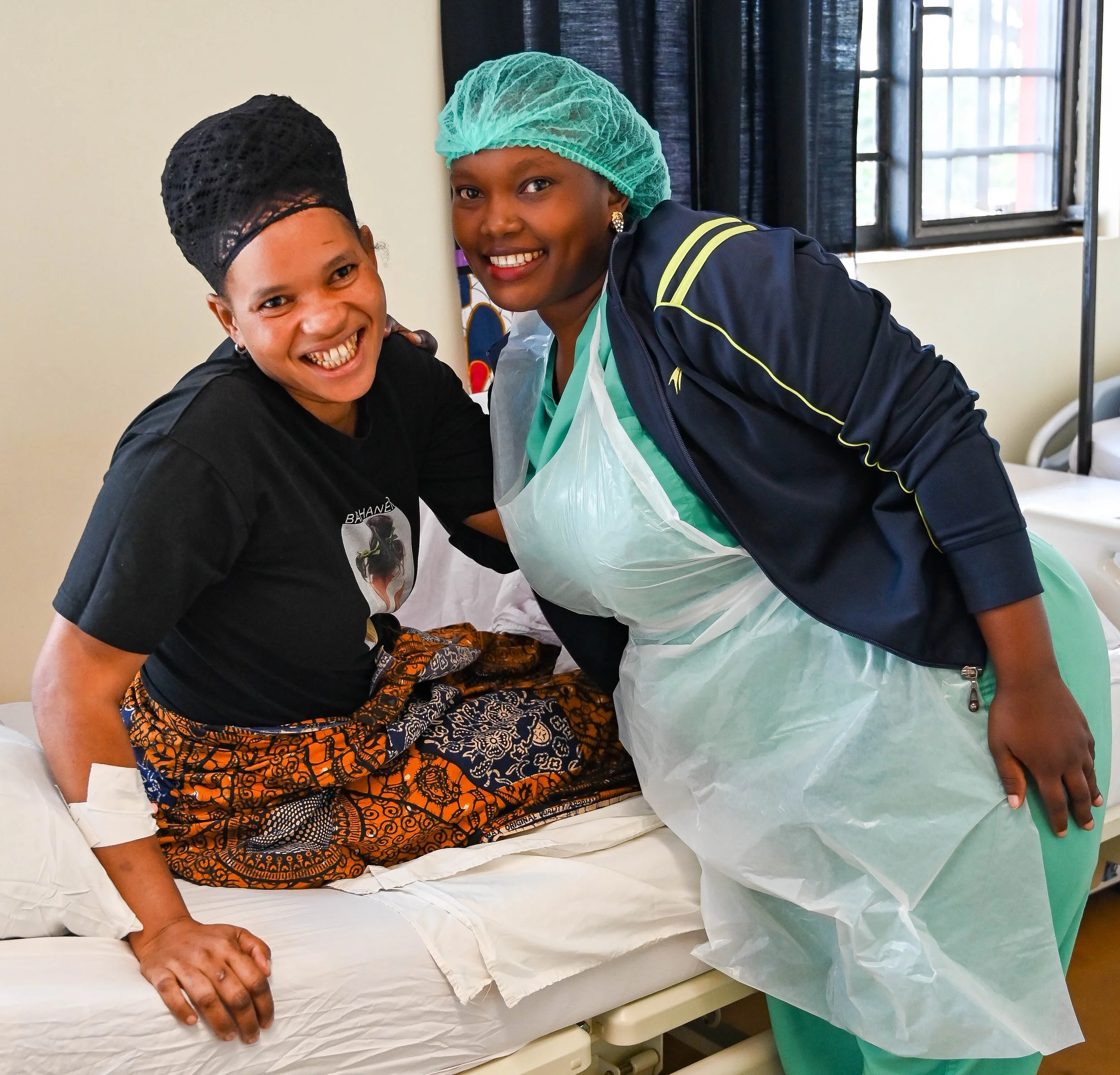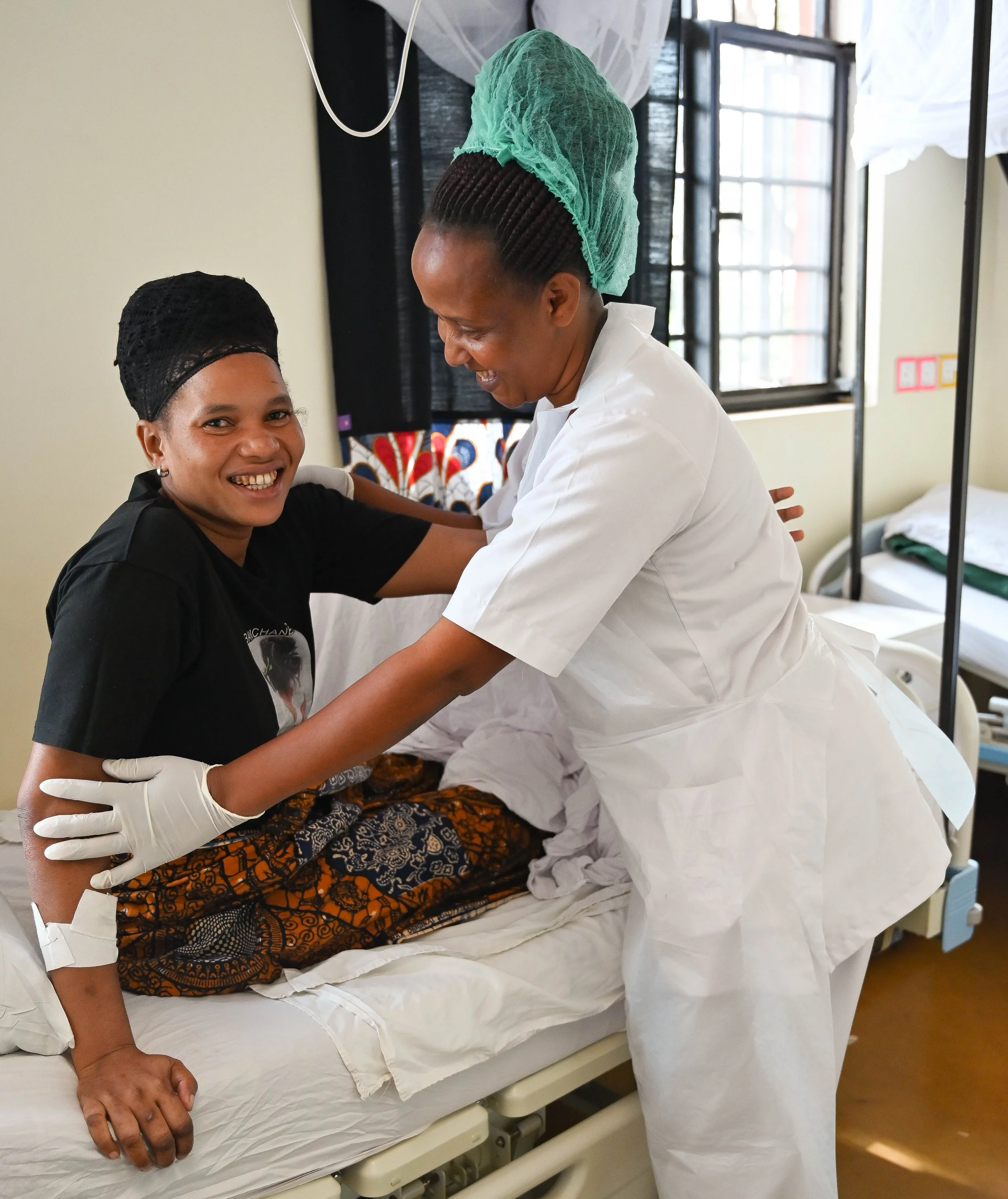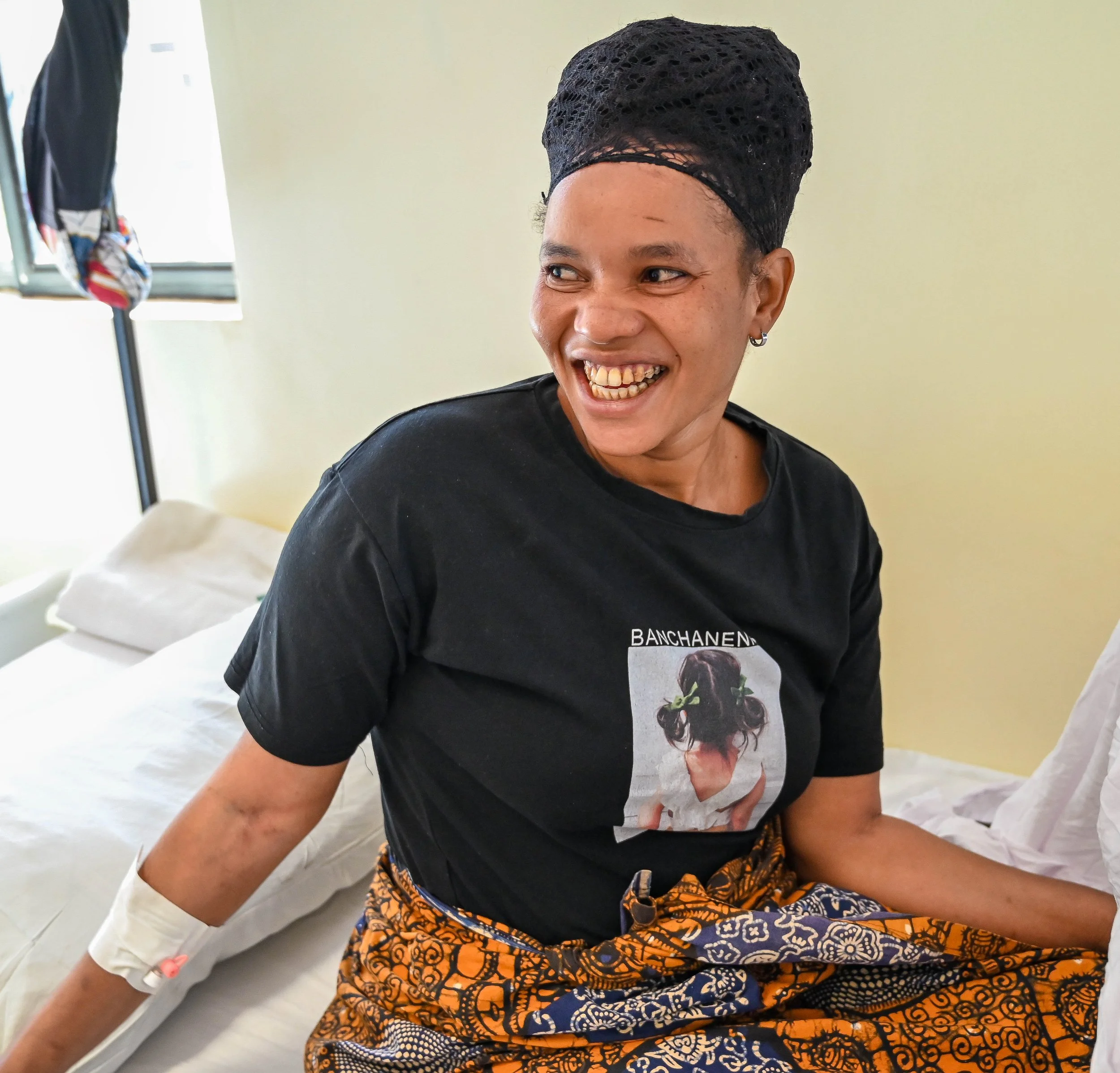22-year-old Saraphina* is admitted to FAME’s Special Care Nursery (SCN) with her four-day-old son. After a routine baby vaccination visit to FAME’s Reproductive Health Clinic (RCH), he was diagnosed with Jaundice, a yellow discoloration of a newborn's skin that occurs when the baby's blood contains an excess of a yellow pigment in red blood cells (Bilirubin).
“The diagnosis was a huge shock. The baby looked fine and was breastfeeding quite well. After a routine blood test, they told me he had jaundice. I didn’t know what that meant, but the RCH staff went to great lengths to explain what it was and how because my son was born full term and had no other medical issues, it was generally not dangerous in this situation. Still, he needed phototherapy for a day or two”
Phototherapy involves a special type of light used to treat newborn jaundice by making it easier for the baby's liver to break down and remove the bilirubin from their blood. Phototherapy aims to expose the baby's skin to as much light as possible.
Saraphina and her son at FAME’s Special Care Nursery (SCN).
Saraphina, a first-time mother, came to FAME when she got pregnant on the recommendation of her big sister, who had given birth at FAME six months earlier. Seraphina came to FAME for her prenatal classes, gave birth at FAME and has now enrolled her son in FAME’s baby clinic at the RCH.
“I had an easy pregnancy, with my son being born naturally at full term weighing 7.7 lbs. I thought the pregnancy and the delivery were the hardest part. Still, I’m finding out Kuzaa Si Kazi Bali Kulea Ndiyo Kazi [It is not difficult to nurse a pregnancy, what is difficult is to bring up a child- Swahili Proverb].”
Saraphina’s son was taken to FAME’s Special Care Nursery for phototherapy.
“They had explained that my son would have to be under special lights for a day or two to help eliminate jaundice, but I was intimidated once I saw the lights. I was scared the lamp would burn him too hot; he was just four days old! They assured me that the light would not harm the baby and that special glasses would protect his eyes.”
After two days, Saraphina and her boy are ready to go home.
“I want to thank FAME for supporting me on this journey of motherhood. FAME has been here from the start. If it weren’t for FAME, I would not have known that there was a problem with my child. I asked the RCH staff how they knew what to test for and they told me that these were routine tests for every newborn coming for a postnatal checkup within seven days. As mothers from this area, we are blessed to have FAME.”
FAME now has four phototherapy units. The two newest phototherapy lights were very generously donated by Redding West Rotary group. They have been a crucial addition to increase FAME’s capacity to treat newborns for jaundice and reduce costly referrals for families.
*While the patient’s name has been changed to protect privacy, permission was secured to share her photos and story with FAME supporters and to raise awareness of available medical care at FAME Medical.













